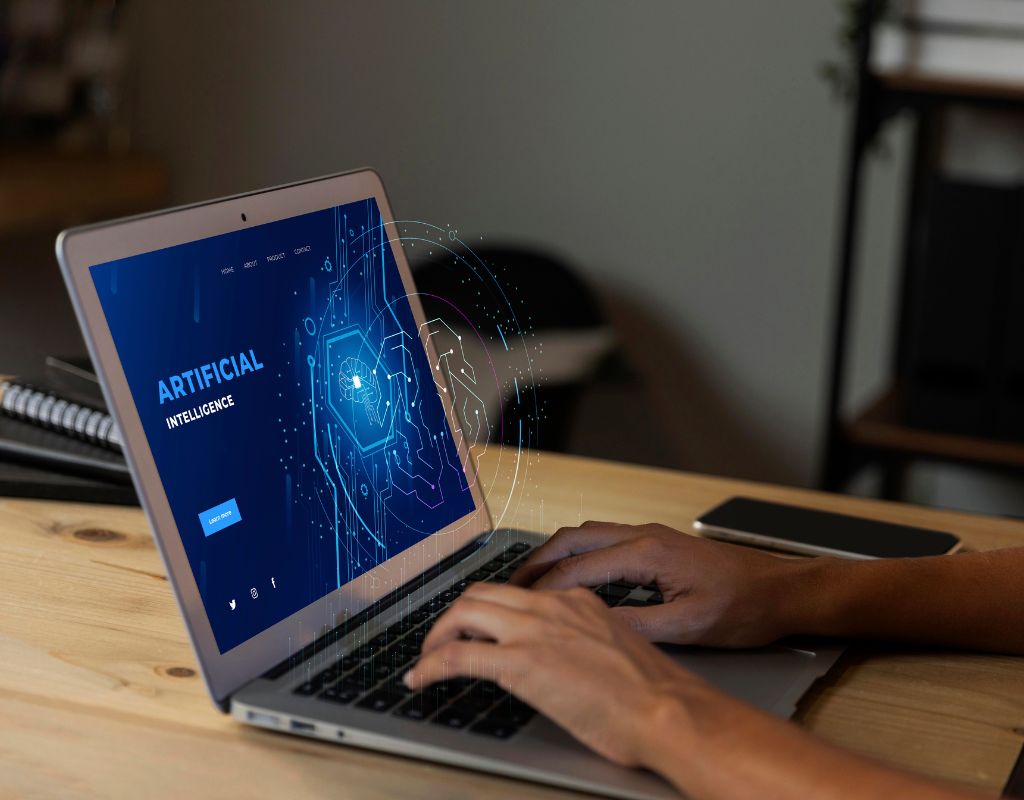Artificial Intelligence Is Transforming Digital Marketing.

Today, we are witnessing an unprecedented digital transformation, where artificial intelligence (AI) is emerging as a key disruptive force, especially in digital marketing. With its advanced ability to process and learn large volumes of data, AI is radically redefining the interaction between brands and consumers.
This technology not only improves the efficiency of marketing operations but also creates opportunities for highly personalized and dynamic user experiences. From content personalization to campaign automation, AI is establishing new paradigms in the industry.
By transforming both marketing strategies and tactics, AI has become indispensable for brands seeking to stay ahead in an increasingly competitive and data-driven market. Its application in digital marketing is not only marking a before and after in the way companies approach their audiences, but it is also reshaping consumer expectations and experiences in a digitally connected world.
1. Personalized Customer Experiences
AI has brought unprecedented levels of personalization to digital marketing. By leveraging machine learning algorithms, businesses can analyze vast amounts of customer data to understand individual preferences, behaviors, and purchase patterns. This data-driven approach enables marketers to tailor their strategies and deliver highly personalized content to target audiences.
For example, recommendation engines powered by AI algorithms can analyze a user’s browsing and purchasing history to suggest products or services that align with their preferences. This not only enhances the customer experience but also increases the likelihood of conversion, driving sales and revenue.
2. Predictive Analytics for Strategic Decision-Making
AI’s predictive analytics capabilities have empowered marketers to make more informed and strategic decisions. By analyzing historical data and identifying patterns, AI algorithms can predict future trends, consumer behavior, and market dynamics. This foresight allows marketers to proactively adjust their strategies, ensuring they stay ahead of the competition.
For instance, AI-powered analytics tools can forecast demand for specific products or services, helping businesses optimize inventory and marketing campaigns. This not only improves operational efficiency but also minimizes costs, maximizing the return on investment.
3. Chatbots and Conversational Marketing
Chatbots, driven by AI, have become integral to the digital marketing landscape. These virtual assistants engage with users in real-time, providing instant responses to queries and guiding them through the customer journey. Chatbots are not only efficient in handling routine tasks but also contribute to a more personalized and interactive user experience.
Conversational marketing, facilitated by AI-powered chatbots, allows businesses to engage with customers through messaging platforms. This approach provides a more natural and casual interaction, building stronger connections and fostering customer loyalty.
4. Enhanced Ad Targeting and Optimization
AI has revolutionized digital advertising by enhancing ad targeting and optimization. Machine learning algorithms analyze user behavior, demographics, and preferences to deliver targeted advertisements. This ensures that ads reach the most relevant audiences, increasing the likelihood of engagement and conversion.
Programmatic advertising, enabled by AI, automates the buying of ad inventory in real-time, optimizing campaigns for maximum effectiveness. This not only streamlines the advertising process but also allows marketers to allocate budgets more efficiently, reaching audiences with higher precision.
5. Content Creation and Optimization
AI has stepped into the realm of content creation, offering tools that generate high-quality and relevant content. Natural Language Processing (NLP) algorithms can develop human-like content, saving time and help for marketers. Additionally, AI can analyze the performance of content across various channels, providing insights for further optimization.
Automated content creation allows marketers to scale their efforts and maintain a consistent presence across platforms. This not only boosts efficiency but also ensures that content aligns with audience preferences and trends.
Conclusion
The integration of Artificial Intelligence into digital marketing has ushered in a new era of innovation and efficiency. From personalized customer experiences to data-driven decision-making, AI is reshaping the way businesses connect with their audiences. As technology continues to advance, the synergy between AI and digital marketing will likely lead to even more sophisticated strategies, propelling the industry forward into a future where personalized, data-driven marketing is the norm.
Also Read : What Is Digital Marketing: Concept, Importance, And Benefits
